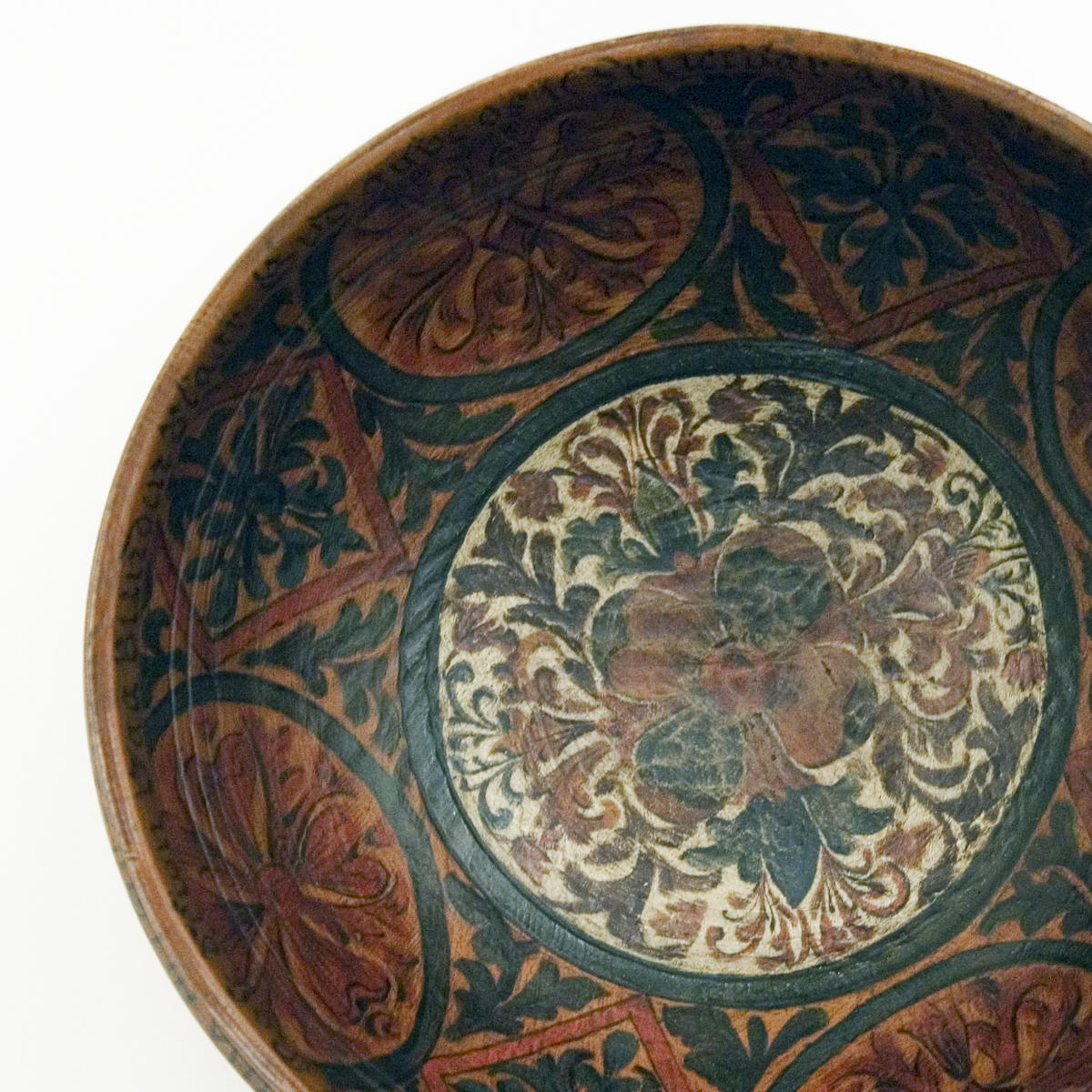- 1/1
In pre-industrial rural society, household furniture and utensils were made by the people living on the farm, or by local craftsmen with no professional training from guilds. Many items were decorated, from simple adornment to ornate decoration.
Regional characteristics developed both in shape and ornamentation, in an interaction between foreign influence like the churches, among other things, and local tradition and creativity
Around 1870, these decorated utility items began being regarded as art, and called ”folk art”. Folk art is exuberant and manifold, with colourful rose painting, vigorous wood carving and textiles rich in colours and patterns.
The Folk Art Exhibit is chronological, showing the development of regional variety through time. It further shows how there was a departure from living tradition after the middle of the 1800s.
